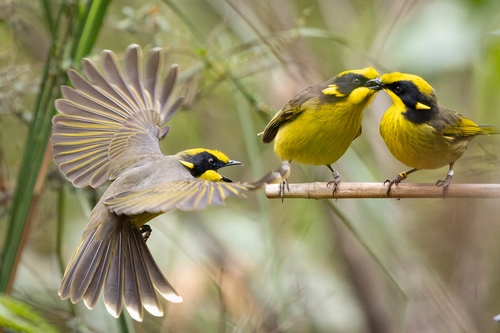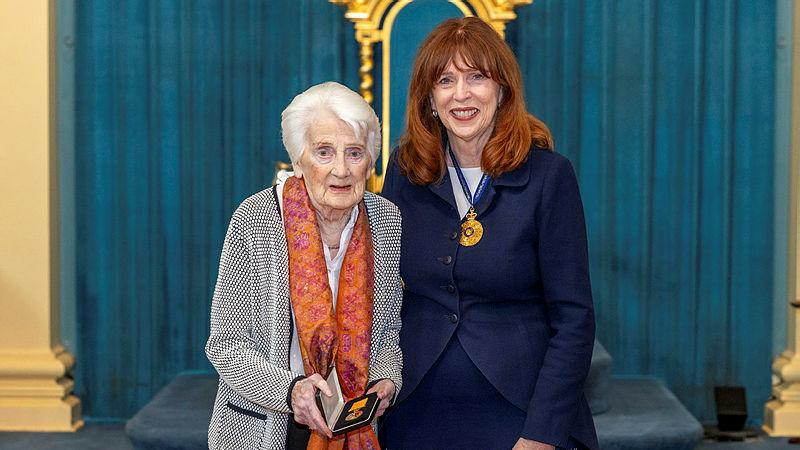Western Australia is set to transition to a safe and sensible controlled interstate border regime, based on the latest public health advice from the WA Chief Health Officer.
Under WA’s new controlled border, the existing hard border exemption system will be removed and replaced with an updated nationwide health-based threshold that allows for safe travel into Western Australia from interstate with conditions, and subject to trigger points being met.
Pending latest health advice, effective from 12:01am on Saturday November 14, Western Australia will enact the new controlled interstate border under the Emergency Management Act.
The State Government will closely monitor the situation over east and if a delay is necessary, based on the latest public health advice, then that will occur.
The Chief Health Officer has recommended a 14-day rolling average of less than five community cases per day in each State and Territory (currently being met in each jurisdiction) be required before progressing to the new border controls.
At this point, travellers from all States and Territories that are ‘very low risk’ – no community cases in 28 days – will be permitted to enter WA and comply with conditions, including:
- all Perth Airport arrivals to undergo a health screening and temperature test on arrival
- being prepared to take a COVID-19 test at the airport COVID clinic, if deemed necessary by a health clinician (voluntary asymptomatic testing available for all airport arrivals)
- complete a G2G Pass declaration, stipulating they do not have any COVID-19 symptoms and which jurisdictions the traveller has been in over the previous 14 days
- all travellers to receive a SMS health check reminder one week into their stay in WA
- land arrivals to be met at the border checkpoint, for a health screening and to have their G2G Pass declaration checked.
These jurisdictions currently include Tasmania, Queensland, South Australia, the Australian Capital Territory and Northern Territory.
All travellers from States and Territories that are deemed ‘low risk’ – less than five community cases per day on a 14-day rolling average – will be permitted to enter WA and comply with similar conditions as ‘very low risk’ jurisdictions, however they will also be required to:
- take a COVID-19 test at the airport COVID clinic, if deemed necessary by a health clinician (voluntary asymptomatic testing available for all airport arrivals)
- self-quarantine for 14 days in a suitable approved premise
- present for a COVID-19 test on day 11.
These jurisdictions currently include New South Wales and Victoria.
Failure to follow these directions will be enforceable by law, with penalties ranging from $1,000 infringements to up to $50,000 fines for individuals.
Based on the public health advice, New South Wales and Victoria remain as a low risk jurisdiction, however when they reach 28 days of no community cases or are deemed ‘very low risk’ by the Chief Health Officer, they will move into that category of border control measures.
The Chief Health Officer will continue to closely monitor community transmission in other States and Territories into the future, and will advise the WA Government if any changes to our borders are required to keep Western Australians protected.
The modified two square metre rule (with exemptions) and remote Aboriginal community restrictions will remain in place for the time being, with all Western Australians strongly encouraged to embrace COVID-safe principles.
Effective from tomorrow (12:01am, Saturday October 31) exempt New Zealand travellers arriving via other Australian cities, as per the new controlled border regime, will be directed to self-quarantine for 14 days at a suitable premise and be required to present for a COVID-19 test on day 11 of their arrival in WA.
In addition, due to the success of suppressing the virus in Victoria, the list of exemptions for travel into WA will be expanded to mirror all other Australian jurisdictions under WA’s current hard border regime. This will come into effect from tomorrow (12:01am, Saturday October 31) and run until the new controlled border is in place.
For more information on WA’s controlled border and other COVID-19 topics, visit wa.gov.au
As stated by Premier Mark McGowan:
“I cannot thank Western Australians enough for the sacrifices made to keep our State safe and strong throughout this global pandemic, but COVID-19 is still a real threat to our way of life.
“Due to everyone’s efforts, WA’s response to COVID-19 has been world-leading and we continue to lead the nation’s recovery.
“All through this pandemic we have been guided by our health advice, and it has served us well as we have embarked on our own unique recovery, best suited to Western Australia.
“Based on the health advice, we are now at the next step of our journey to safely and sensibly transition from our hard border to a new controlled interstate border.
“For more than seven months Western Australia has been isolated from the rest of the country, as we protected our community from COVID-19 and emerged from our own restrictions safely, inside our island within an island.
“We are following the public health advice and taking safe, steady and sensible steps to cautiously replace our hard border with a new controlled border.
“It is a reminder to everyone though, to not get complacent and take unnecessary risks, we all need to act responsibly and follow the health advice.
“That is why we are strongly encouraging all local businesses and venues to update and maintain their COVID Safety Plans and embrace COVID-safe principles.
“We will be consulting with industry and organisations over coming days to ensure appropriate mechanisms and contact registers are ready to be rolled out if necessary.
“The virus has not been defeated around the world, therefore we must work together to prevent a serious outbreak and not jeopardise the hard work of each and every Western Australian.
“We also must take a cautious approach to our international border and not rush to opening to other countries, this is something I continue to raise with the Commonwealth Government.”
As stated by Health Minister Roger Cook:
“This is yet another significant day for all Western Australians.
“We have been very fortunate to have expert leadership across so many areas to ensure WA has been the safest place in the world for many, many months.
“That has not happened by chance. It is a credit to every Western Australian who have played their part.
“Now we are asking everyone to help us on the next stage of this unpredictable journey.
“Any decision regarding COVID-19 always comes with risk.
“The Chief Health Officer, whose advice has always been impeccable, has laid out a path forward for Western Australia and the rest of the country.
“As always, the Government will review his advice and act on it in the best interests and safety of all Western Australians.
“Western Australians are rightly known for our relaxed approach to life.
“But it is more important than ever that we don’t get too relaxed. We have to be vigilant and expect outbreaks of COVID-19.
“We’ve seen recently in Victoria, and more recently in the lockdowns in France and Germany, just how quickly this virus can devastate a community.
“We all need to take personal responsibility so that we can continue to succeed together.
“We have to get back to basics – wash your hands, practise good hygiene and observe physical distancing.
“If you are unwell, do not go to work or school.
“Do not hesitate if you need to get a COVID test.
“Please keep it simple to keep us all safe.”






